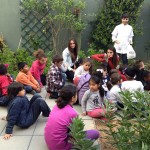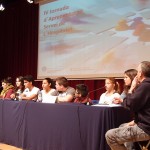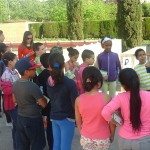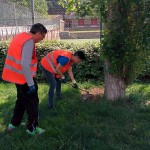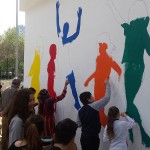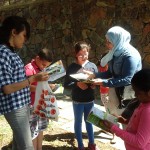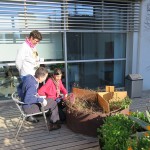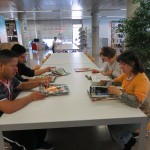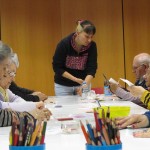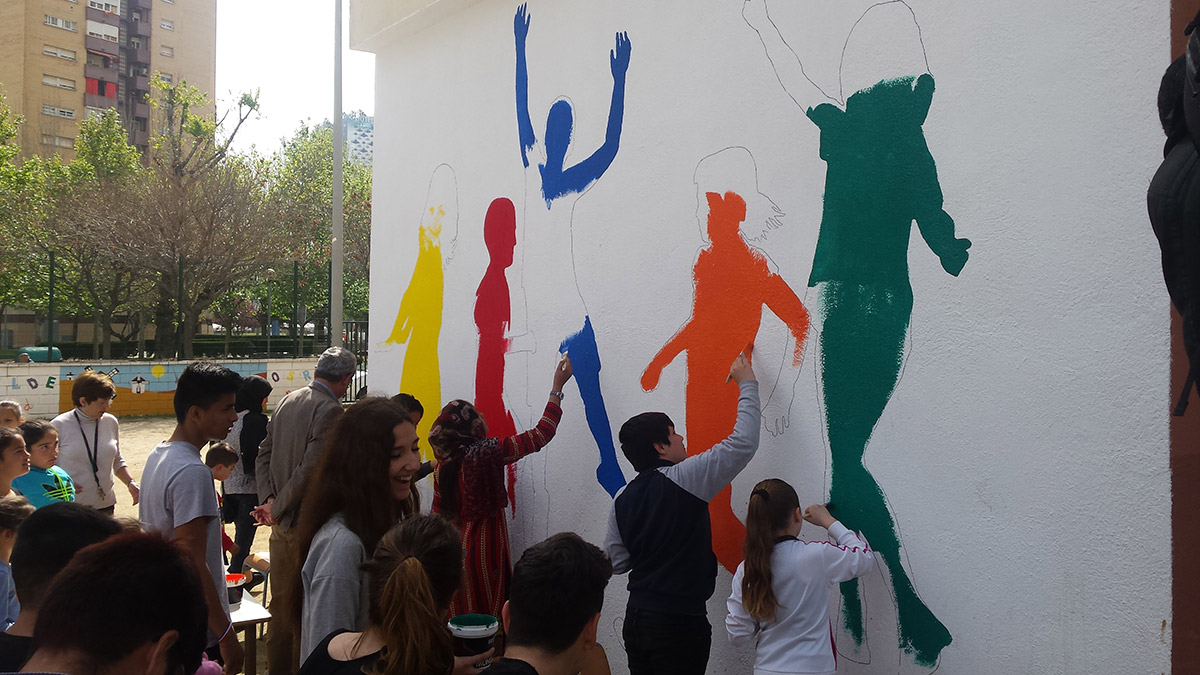
L’Hospitalet de Llobregat Boosting Learning-Service as a tool of living together, social cohesion and participation
More than 2,000 students participate in Learning-Service activities for approximately 70 entities in the city.
With a population of more than 260,000 living in just 12.4Km2, L’Hospitalet de Llobregat is the second most populated city in Catalonia. It borders on Barcelona and is characterized by being a city that has welcomed large numbers of immigrants. 19% of its population is of foreign origin, mainly from North Africa, Latin America and Asia. The immigrant population is unevenly distributed and exceeds 35% in some neighbourhoods. The unemployment rate is 16.5% and gross family income is 18% lower that the Catalan average..
In 2007, L’Hospitalet de Llobregat decided to focus on the improvement of education as a city strategy. Thus, the City Council set a number of targets, including enhancing success at school, preventing early school dropout, truancy, decreasing conflicts at high schools, fostering inclusion of immigrant students in the schools and the city, opening the schools to the community by creating broad educational networks, and bringing young people more in touch with their immediate environment in order for them to feel proud of it and get involved in its transformation.
Thus, the City Council decided to adopt the Learning-Service methodology and to extend it to all schools, high schools and leisure time educational centres in the city, as part of a global urban strategy with the political support of the entire Council and the involvement of different departments of the municipal government.
The Learning-Service (ApS, original acronym) is a pedagogical methodology that combines, in one concrete action, the learning of a determinate part of the educational curriculum with undertaking a project that benefits the community. The students learn contents and values and acquire skills by developing their social commitment to more vulnerable groups in their environment, by exercising at an early age their right to being active citizens engaged in the transformation of society.
In order to drive forward the Learning-Service initiatives in the city, a permanent working group was created that meets quarterly in order to coordinate, promote and evaluate the proposals. It is made up of 10 persons representing teachers, social partners, the Learning-Service Development Centre of Catalonia, the regional government and the City Council.
At the same time a municipal team of experts was put in charge of monitoring the projects and offering training and guidance to teachers, educators and social activists who wish to promote this methodology in their schools and associations. This team is also in charge of building bridges between schools and entities willing to welcome students in their social and educational activities.
Every year new schools and social entities join the Learning-Service projects in the city.
Nowadays, more than 100 stable project have been inventoried which involve more than 2,000 students from 44 primary and secondary schools. These students contribute to meet the needs of different groups of approximately 70 social and educative entities.
The Learning-Service activities range from offering services in elderly residences (motor skills exercises, memory games, musical recitals, etc.), to supporting reading-writing learning or digital literacy for adults, welcoming and integrating new students into the schools, story-telling in libraries for children, care and embellishment of the school and its environment, organization of bicycle tours for the disabled, or even contributing to solidarity campaigns, etc. These activities that bring together people of different ages and cultures, become a clear example of fostering cross generational and cross-cultural relationships, social cohesion, values education and the creation of bonds with the neighbourhood.
This is an innovative form of learning that pedagogically renews the curriculum and which has managed to cut down truancy and improve living together in the schools. Proof of this is that conflict mediations in the schools dropped from 52 interventions in the 2009/2010 school year to only 5 last year. This tool, besides raising the image that the community has of both school and the youths, generates the emergence of collaborative networks and strengthens the local associations.
Presented by: City Council of L’Hospitalet. Department of Education
Contact: Mr. Lluís Esteve Garnés
e-mail: lesteve@l-h.cat; regidoria.educacio@l-h.cat


